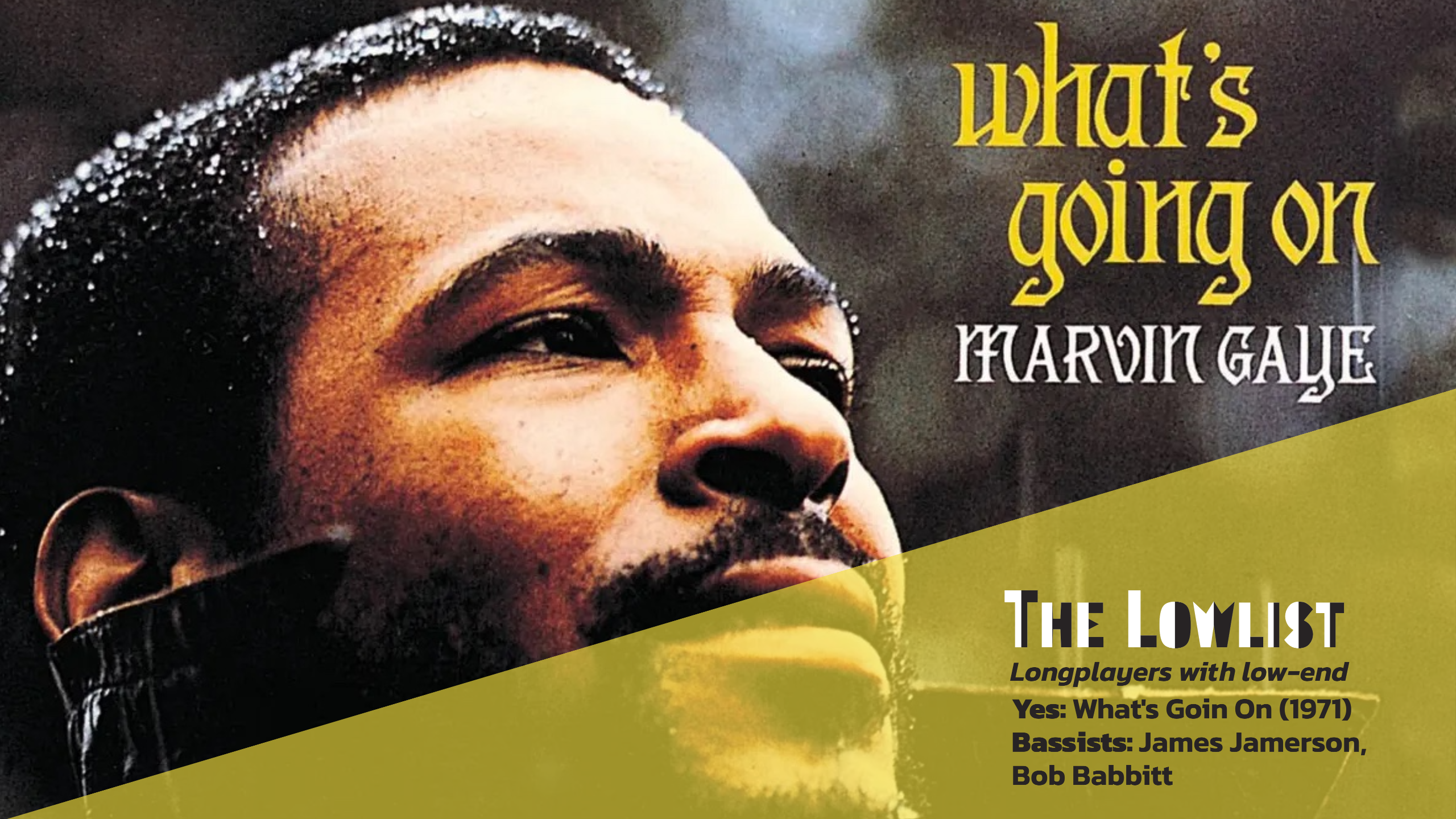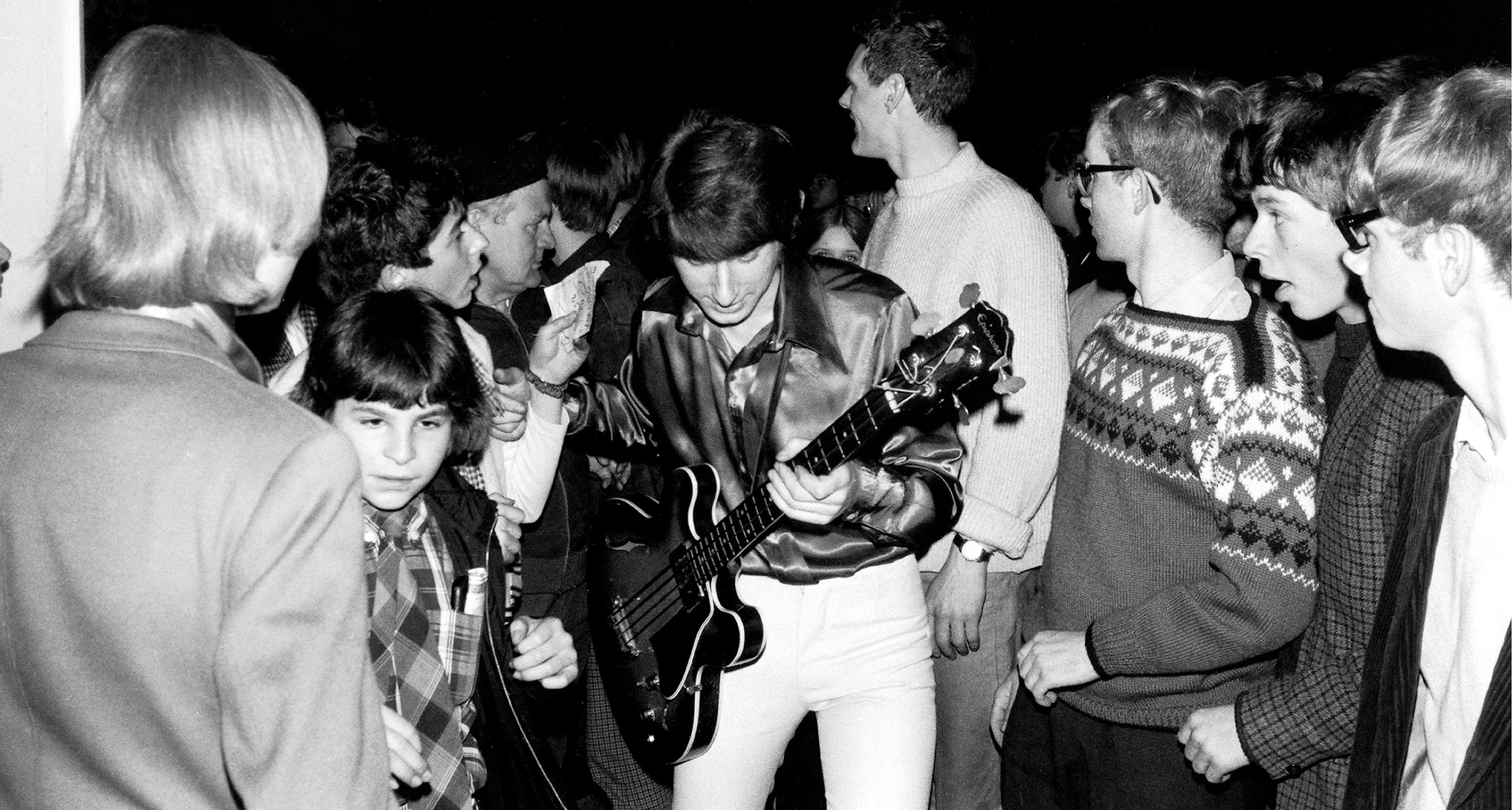The legend of Marvin Gaye's What's Going On is that James Jamerson was so drunk he played the bass lying down
And yep, most of us can’t play those basslines standing up and completely sober

What’s Going On, released in 1971, is one of the most important albums in the history of popular music. It appeared at a time of great social unrest in the USA, while its composer Marvin Gaye was facing his own personal troubles, including depression, cocaine dependency, marital problems and a strained relationship with his label, Motown, and its boss Berry Gordy.
The last of these issues came to the fore with the title track, which was presented to Gaye by a band he was producing. He took the basic elements, reworked the melody and came up with a classic. Gordy hated the song, but when the single raced up the charts, he performed a U-turn and insisted that Gaye complete the album in less than a month.
For bass players, the album is a masterclass. Apart from two tracks where Bob Babbitt provides the bass track, James Jamerson performs wonders with his trusty Fender Precision, loaded with well-worn, heavy-gauge La Bella flatwounds played through an Ampeg B-15 Portaflex.
The story of Jamerson’s involvement with What’s Going On is unforgettable. In order to record the title track, Gaye had to locate Jamerson and found him in a local bar, slightly worse for wear. By the time he got him to the studio, the bassist could barely stand up. Such was the genius of the man, he played the song horizontally, lying flat on the floor.
Motown piano player Joe Hunter told The Guardian: "Jamerson could drink. Man, he could drink. He used to say he played better when he was loosened up. That's when he'd go right out there. One time Berry [Gordy] had to go and carry him back from a drinking club to a session. That bassline you hear on What's Goin' On by Marvin [Gaye] – Jamerson played that lying flat on his back, right there on the studio floor."
Most of us can’t play those lines standing up and completely sober. Below is the isolated bassline.
Even when Jamerson played busily, he made the bass parts sound simple, keeping the pulse of the song going throughout and creating one of his trademark lines in the process. What’s Happening Brother continues the flow set by the title track, with Jamerson providing an upfront, bubbling bassline that perfectly complements Gaye’s tale of Vietnam veterans disillusioned by post-combat society.
All the latest guitar news, interviews, lessons, reviews, deals and more, direct to your inbox!
Flyin’ High references heroin dependency, and again, Jamerson’s walking bass-line is pivotal and the centre-point of the track. His jazz background comes to the fore as he plays over the chord changes, never putting a foot wrong. By this point in the album, the listener is fully aware that What’s Going On is a concept album, each track blending into the next and taking the listener on a thematic journey. Save The Children features yet another walking bassline of the highest quality.
Save The Children has two distinct sections, the second of which segues into God Is Love, reprising the groove and feel of the title track. This eventually morphs into the groove that leads into Mercy Mercy Me, another Marvin Gaye classic, with Bob Babbitt filling the bass chair.
Right On is a funky Latin hybrid: it should come as no surprise that Carlos Santana covered the track on his 1992 album Milagro, with Larry Graham on vocals. Inner City Blues is incredibly evocative with its sparse, syncopated funk line courtesy of Babbitt. It’s classic soul music with a message.
Listening to the album, you realise that many of the concerns Marvin Gaye was expressing in 1971 are equally relevant today, as the video below (from 2019) demonstrates. What is going on?
What's Going On is available to buy and stream




